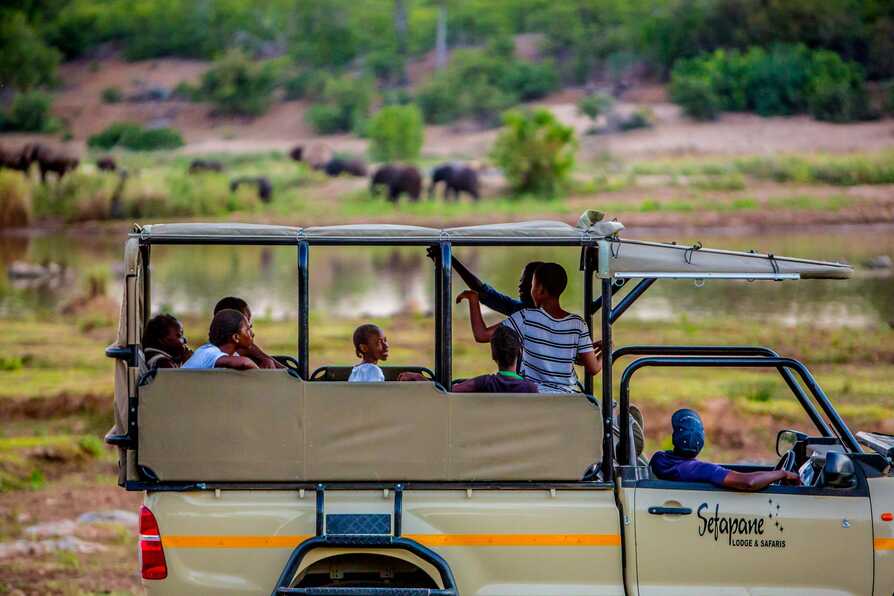
Imagine growing up next to the world famous Kruger National Park, but never actually having seen an elephant. How can you appreciate the wonders of life next door? With TUI Care Foundation’s support, 1,550 primary school children from grades five, six and seven in villages around the Kruger National Park in South Africa receive education on nature and conservation through the local organisation Sefapane Community Development Fund. This “Ecokidz” programme increases awareness on the importance of natural resources and makes nature conservation an integral part of the school curriculum. Working together TUI Care Foundation and Sefapane hope to strengthen and inspire responsibility for the environment among the next generation.
In addition to school-based learning on nature and conservation, 400 of the children are selected to visit Kruger National Park each year as part of the 20 two-day adventure camps that organisers run as part of the educational programme. Despite living within a few miles of the park, these children`s families can rarely afford to visit it. Now many of them are given the opportunity to spot giraffes, rhinos and wildebeest, while learning about Africa’s flora and fauna and the importance of preserving and respecting the natural environment for their community.
Thomas Ellerbeck, Chairman of the Board of Trustees of TUI Care Foundation, highlighted the holistic approach needed to make a success of this kind of project: “Since its establishment, TUI Care Foundation has acknowledged education to be a cornerstone for sustainable development. An empowered youth is not only crucial to fight unemployment, but it also opens a path towards an ecologically responsible generation. To support future ambassadors for South Africa`s nature and wildlife is a great opportunity to help preserve the spectacular natural environment of this country.”
The project has gathered great support from the local community with children really eager to participate. Educational institutions have also been quick to adopt the highly interactive programme as an integral part of the curriculum. The programme is delivered through a network of local men and women who are trained to become Environmental Monitors, which means a paid job for them in an area where more than 50% of the young adults are unemployed. Applicants need to have finished their high school, have some experience with teaching and an interest in environmental issues in order to become an Environmental Monitor with EcoKidz. Organisers are particularly keen to target underprivileged people, and especially women.
Eric Mkansi is Director of the Pondo primary school that is participating in the educational program. He explains: “We are so happy and impressed with the Ecokidz programme. Our kids are becoming more orientated on environmental issues; they realise it’s a worthy cause. Especially now, after the first group went on the excursion, they see the incentive of working hard and behaving well in class.”
According to Joris Bertens from Sefapane Community Development Fund, the programme is intended to consolidate what has been a fruitful long-term relationship with local institutions: “We are co-operating with 9 schools in order to create a “journey” for a learner, taking him or her through several years of environmental education. Teachers are eager to know more about our programme and we have held presentations for them with high levels of attendance and response.”

